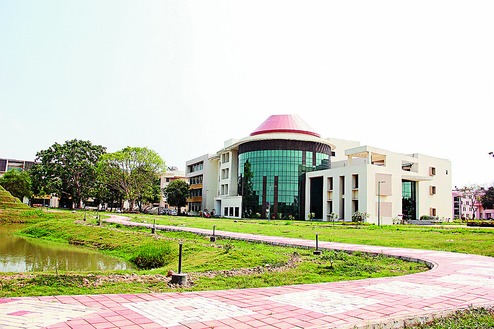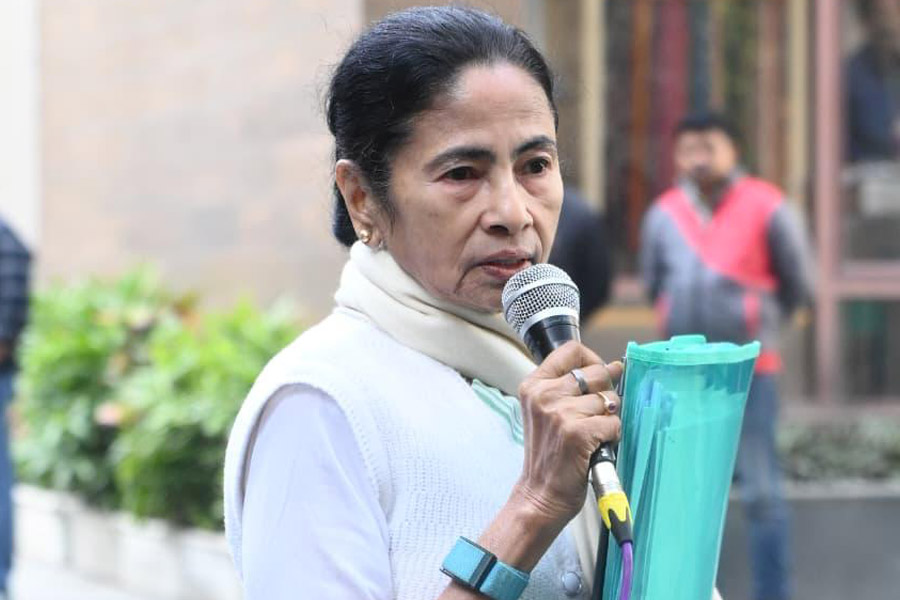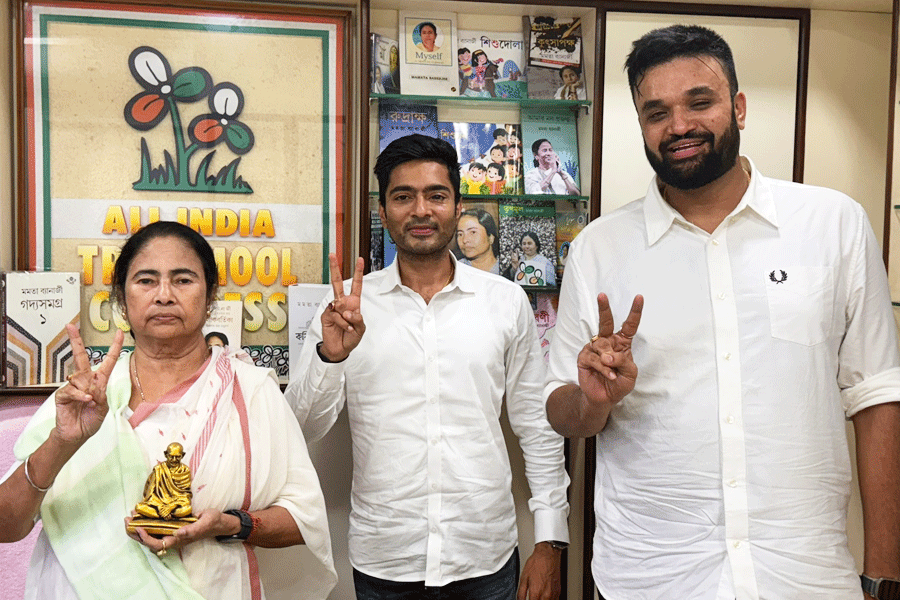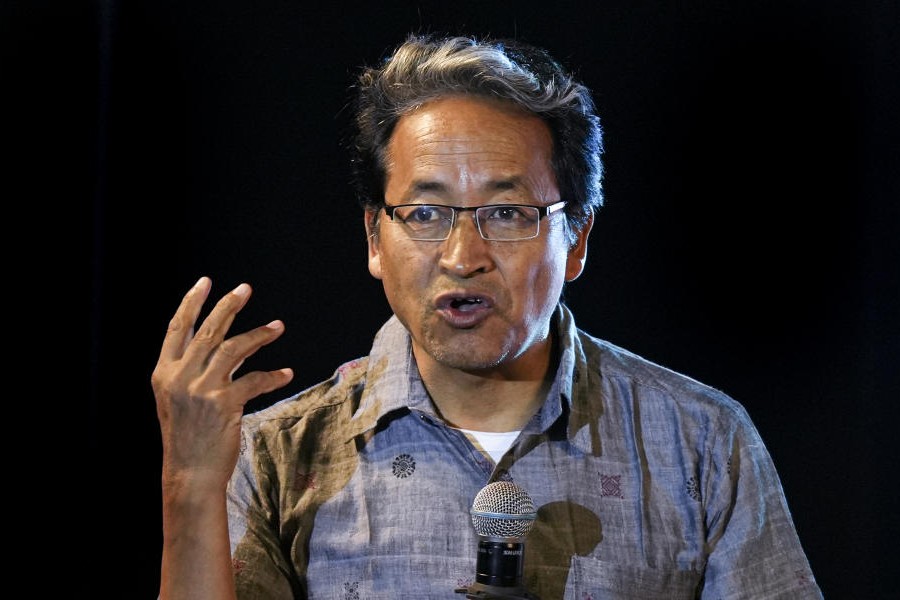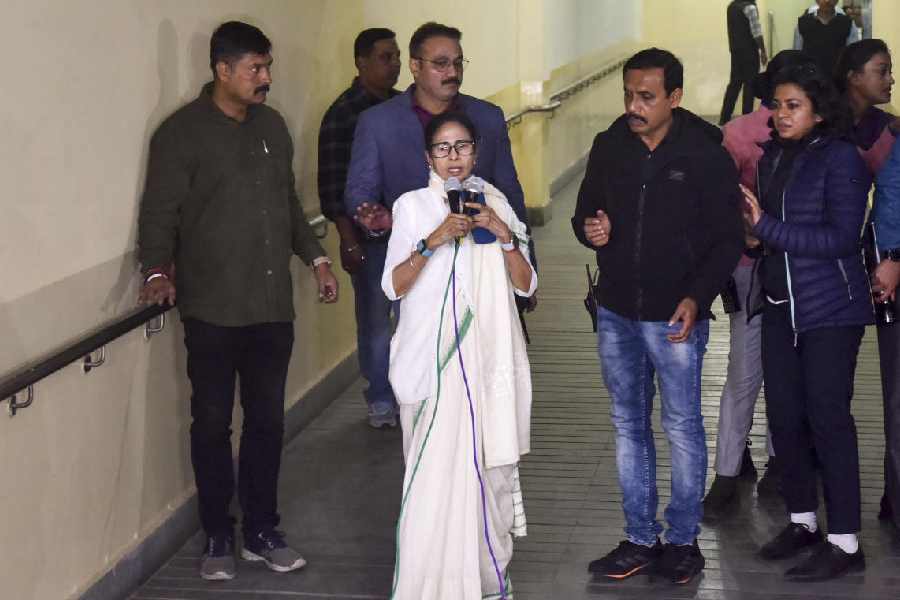
New Delhi, July 23: Allegations of harassment and humiliation, illegal promotions and gender discrimination have split faculty and administrators at the Indian Institute of Science Education and Research Kolkata (IISER-K).
The chain of controversies has also brought to the fore the absence of a fair grievance redress system in academia, which is now tilted heavily in favour of the embedded bureaucracy in the institute concerned.
A group of teachers from the IISER-K has written to the Union human resource development (HRD) ministry complaining against the "director and his close associates" and seeking intervention to prevent a possible "complete administrative collapse".
A faculty panel too has written to the Union women and child development ministry alleging "systematic bias and discrimination by the IISER-K authorities against (some) women scientists which is jeopardising their careers".
These complaints, sent over the past two months, follow multiple appeals the HRD ministry has received over the past two years from faculty members alleging poor governance, offensive behaviour by the director and deans, and a degradation of the institute's academic atmosphere.
Their appeals expose what some faculty members say is the dark underbelly, largely unknown to the public, of an institution that receives some of India's brightest students annually for BS-MS courses in the sciences and carries the tag of an "institution of national importance".
"We're expected to nurture students and do research. How can you do that amid harassment, humiliation and rank pettiness?" said a teacher, one of several who spoke to The Telegraph requesting anonymity because they feared retribution from the institute authorities.
The institute administration told this newspaper that the complaints were "unsubstantiated and baseless accusations", representing "the views of only 21" of the institute's 103 teachers.
It also said the institute had sent the HRD ministry "detailed responses" to the faculty complaints.
"It should be noted that the ministry did not act upon the allegations after receiving the responses," the institute added.
Three institute administrators - director R.N. Mukherjee, registrar J. Sil and dean of faculty affairs Prasanta Panigrahi - declined to respond to queries from this newspaper.
Panigrahi, though, wrote via email that the institute had seen "phenomenal progress" during Mukherjee's tenure as director, measured through infrastructure development, student training and research output.
Three teachers who are not among the 21 signatories to the complaints sent to the HRD ministry said they believed the concerns expressed were justified.
A senior HRD ministry official told this newspaper that the ministry lacked a standard mechanism to deal with complaints from faculty against administrations in educational institutions.
"We usually refer such complaints back to the institute and ask for explanations," the official said.
Such a mechanism to redress grievances is unlikely to resolve issues if the institute administration provides false or misleading information to the ministry, a senior faculty member said.
The most recent complaints received by the HRD ministry have come at a time the institute administration faces likely transition. Director Mukherjee's term is over, and the teachers expect to see him leave this week.
"But the real issue is broader than just one director. There's no mechanism to handle such grievances, and we don't know whether our suffering will be over when the next administration comes in," a teacher said.
Documents available with this newspaper suggest that several students had in 2014 independently complained to the institute authorities about "mental abuse" and "mental torture" by a teacher who continues to head a department today. "Those complaints have not been addressed," a teacher said.
The HRD ministry has received complaints that director Mukherjee has "flouted statutory norms" by promoting three teachers as professors despite the selection panel lacking a "council nominee", whose presence is mandated by the rules.
Also, the rules say a teacher can be promoted to professor only if at least one PhD student has already earned his or her doctorate under the teacher's supervision. But two of these three teachers, promoted in 2015, allegedly fell short of this requirement at the time.
A faculty panel from the institute wrote to the Union women and child development minister Maneka Gandhi in May this year alleging gender discrimination.
It said the institute had denied a permanent position to earth scientist Sutapa Bose, who had been holding a temporary position as a government-supported Ramanujan Fellow at the institute since December 16, 2011. Her term eventually ended on June 30, 2017.
The letter said Bose had applied for the permanent job of an assistant professor four times, but was refused each time despite a proven record of "excellent publications" and mentoring of PhD students. It added that two male teachers with weaker credentials were promoted to professor.
The panel accused the director of offensive behaviour that had made the atmosphere "extremely unfriendly and hostile for our women colleagues".
A teacher had recalled at a young scientists' conference in 2015 how director Mukherjee had once asked her why, as a woman with a family, she should bother about building a career in science.
Male teachers too have complained of feeling harassed or victimised, blaming pettiness on the part of the institute authorities.
Minutes of the institute's physics department say that on September 21 last year, physicist Rajesh Nayak, a member of the international search for gravitational waves, felt "harassed and insulted" by director Mukherjee and dean Panigrahi.
Nayak was apparently summoned to the director's office where he was "questioned by whose permission" he had joined the global search and asked to explain his contribution and the source of the data he had analysed.
After he responded, the documented minutes say, Panigrahi pointed out that a research paper Nayak had co-authored mentioned the pin code of the institute incorrectly.
"This is an example of harassment that strikes at the heart of our existence," said a faculty member. "They ridicule and target the best academic achievements, something we are paid to do from public funds."
The minutes, citing complaints by other faculty members about the administration questioning their scientific collaboration, have described such incidents as "mentally disturbing" and "academically demotivating".
An associate professor invited the administration's ire when he sent out an email to fellow teachers inviting them to a scientific talk a visiting physicist was to deliver on the campus.
"Some issues such as gender discrimination are serious. They can destroy careers. Others, such as the humiliation that Nayak felt, may appear frivolous but can affect morale," a senior teacher said.
Several of the complainants suspect that the HRD ministry's inaction owes to possibly misleading information provided to it by the institute administration.
They claim the institute had sent the ministry a misleading report on the death of Sagar Mandal, a second-year student at the institute who allegedly committed suicide on May 1.
The institute's report had said that students had on-campus access to psychological counselling and that Mandal had "ended his life in a sudden spur of the moment which had no apparent connection with his usual academic/physical/mental state of affairs".
Several faculty members say that both claims are false.
The faculty association's follow-up note to the ministry had said that Mandal had expressed fears he might no do well in his exams and had approached the dean of academic affairs to ask about possible loss of scholarship.
The note also asserted that the institute had, at the time, no counselling mechanism to help students who faced such anxieties.
"The institute administration lied even in the wake of a tragic incident," a teacher said. "This reflects the systematic practice of cover-up to hide the crumbling administration under its leadership."

